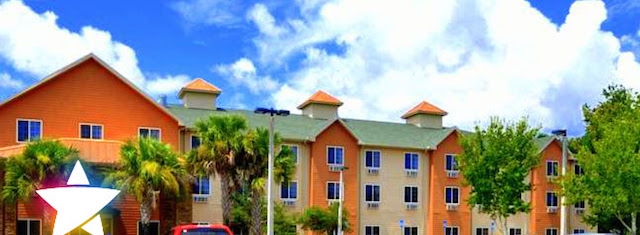Lifestyle
PROPERTY IMPROVEMENT PLANS IS PART OF RE FRANCHISING
EXPLAINS THOMAS MAGNUSSON

Magnusson Hotel logo (Source: Courtesy Magnusson)
USPA NEWS -
While PIPs can be used for the purpose of maintaining consistent branding in hotels, they can also be used to drive good hotels out of their contracts and effectively re-franchise an area. For example, a chain may have offered an area of protection to a specific hotel, Thomas Magnusson explained.
WHAT ARE THE COSTS AND CONSEQUENCES OF PROPERTY IMPROVEMENT PLANS DEFINES ?-------------------
A PIP is, more often than not, an expensive undertaking, and one that can place an enormous financial burden on small franchisees. This is not only in the form of the cost of undertaking renovations and the loss incurred with the disruption to business, but constantly evolving standards mean properties often have to endure ongoing renovations to remain compliant.
In many cases, perfectly functioning hotels 10 years of older are forced to make design changes that may not be economically viable. For example, exterior corridor hotels may be deemed no longer permitted, and if one wants to stay with its brand, it will need to structurally enclose all exterior corridors. Many brands say market research states that exterior corridors are unsafe. Yet, top hotels such as the Arizona Biltmore or Hawaii´s legendary Mauna Kea Beach Hotel use exterior corridors.
Some brands are now requiring costly installation of elevators for 2 story properties, even when the property goes above and beyond in providing top quality disabled facilities on the ground floor. For a 40 room Best Western grossing $500K a year, the cost of the elevator is nearly 15% of annual sales. Holiday Inn Express, which recently implemented its “˜Formula Blue´ PIP requires hotels to redo all rooms and common areas whether the fixtures are old or not. For a 100 room property, design oriented PIPS can easily run $200,000. Hotels in a franchise are required to stay up to date with the set brand standards, and failing to stay up to date with these can result in hefty fines. For example, one top global franchise actually fines franchisees $2000 for running out of bananas at the hotel breakfast bar.
PROPERTY IMPROVEMENT PLANS IS PART OF RE-FRANCHISING-------------------------------------------------------------
While PIPs can be used for the purpose of maintaining consistent branding in hotels, they can also be used to drive good hotels out of their contracts and effectively re-franchise an area. For example, a chain may have offered an area of protection to a specific hotel, but as the local economy has changed, the chain wants to capitalize on this growth with market expansion. Enforcing a PIP that is untenable can see that existing franchise close doors, thus there is no area of protection to maintain, and the chain can install as many hotels and sub-brands in the area as it likes.----------------------------------------------------------
Wyndham Hotel Group, which has recently announced a global brand refresh states that over the past two years, the company removed 90% of the rooms in 2015 that did not meet its PIP standards. At the same time, Wyndham added 650 new builds to its pipeline. Chains maintain that PIPs are necessary for driving consumer satisfaction, and a growing number of hotel owners disagree, stating that PIPS are firmly in the interests of the chains and not their franchisees. So could this be the reason so many hotels are exiting the traditional franchise model in search of alternatives that encourages owner-driven PIPs?
Source Thomas Magnusson
Liability for this article lies with the author, who also holds the copyright. Editorial content from USPA may be quoted on other websites as long as the quote comprises no more than 5% of the entire text, is marked as such and the source is named (via hyperlink).







